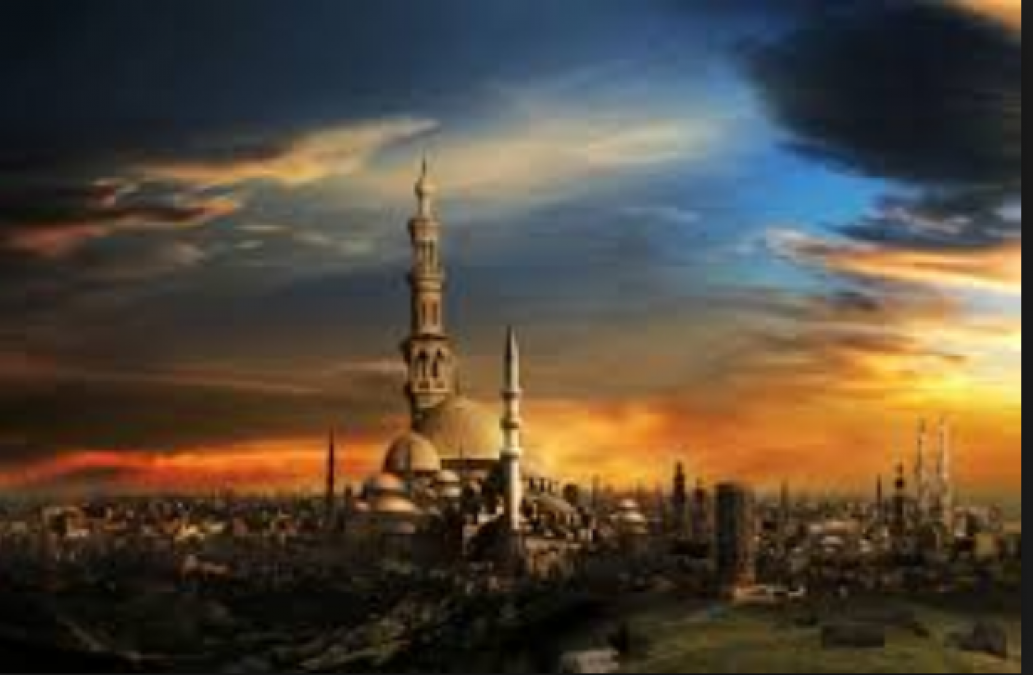
"Jannah"—also known as paradise or garden in Islam—is described in the Quran as an eternal afterlife of peace and bliss, where the faithful and righteous are rewarded. The Quran says the righteous will be restful in the presence of God, in "gardens beneath which rivers flow." The word "Jannah" comes from an Arabic word that means "to cover or hide something." Heaven, therefore, is a place that is unseen to us. Jannah is the final destination in the afterlife for good and faithful Muslims.
Quranic Definition of Jannah
According to the Quran, Jannah is paradise, a garden of everlasting bliss and the home of peace. Allah determines when people die, and they stay in their graves until the Day of Judgment, when they are resurrected and brought to Allah to be judged on how well they lived their lives on earth. If they have lived well, they go to one of the levels of heaven; if not, they go to hell (Jahannam).
Jannah is "a beautiful place of final return—a garden of eternity whose doors will always be open to them." (Quran 38:49–50)
People who enter Jannah "will say, ‘Praise be to Allah who has removed from us [all] sorrow, for our Lord is indeed Oft-Forgiving, appreciative; who has settled us in the house of lasting residence out of His bounty. No toil nor sense of weariness shall touch us therein.'" (Quran 35:34–35)
In Jannah "are rivers of water, the taste, and smell of which are never changed. Rivers of milk the taste of which will remain unchanged. Rivers of wine that will be delicious to those who drink from it and rivers of clear, pure honey. For them will be every kind of fruit and forgiveness from their Lord." (Quran 47:15)
What Does Heaven Look Like for Muslims?
According to the Quran, for Muslims, Jannah is a peaceful, lovely place, where injury and fatigue are not present and Muslims are never asked to leave. Muslims in paradise wear gold, pearls, diamonds, and garments made of the finest silk, and they recline on raised thrones. In Jannah, there is no pain, sorrow, or death—there is only joy, happiness, and pleasure. Allah promises the righteous this garden of paradise—where the trees are without thorns, where flowers and fruits are piled on top of each other, where clear and cool water flows constantly, and where companions have big, beautiful, lustrous eyes.
also read Time of your birth reveals about your future and Career; Know what is in your fate
There is no quarreling or drunkenness in Jannah. There are four rivers named Saihan, Jaihan, Furat, and Nil, as well as large mountains made of musk and valleys made of pearls and rubies.
The Eight Gates of Jannah
To enter one of the eight doors of Jannah in Islam, Muslims are required to perform righteous deeds, be truthful, search for knowledge, fear the most merciful, go to mosque every morning and afternoon, be free of arrogance as well as the spoils of war and debt, repeat the call to prayer sincerely and from the heart, build a mosque, be repentant, and raise righteous children. The eight gates are:
Baab As-Salaat: For those who were punctual in and focused on prayer
Baab Al-Jihad: For those who died in defense of Islam (jihad)
Baab As-Sadaqah: For those who frequently gave to charity
Baab Ar-Rayyaan: For those who observed fasting during and beyond Ramadan
Baab Al-Hajj: For those who participated in the Hajj, the annual pilgrimage to Mecca
Baab Al-Kaazimeen Al-Ghaiz Wal Aafina Anin Naas: For those who suppress or control their anger and forgave others
Baab Al-Iman: For those who had sincere faith and trust in Allah and strived to follow his commands
Baab Al-Dhikr: For those who showed zeal in remembering God.
also read Sikhism is different from Hinduism in these things